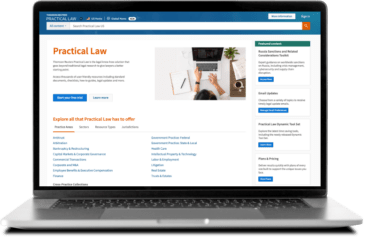Every company has intellectual property to protect. It is the job of in-house counsel to ensure that the company takes the right steps to create and protect that intellectual property, often the crown jewels of any business. Failing to have the right agreements, policies, training, and plans in place can mean trouble (and a very rough day in the office for in-house lawyers).
There are a number of things you can do as in-house counsel to help the company protect these valuable assets, which is as important as ever in this new digital age of gigantic repositories of digital data that can be easily pilfered and the advent of truly useful artificial intelligence which is often “trained” on the data in those repositories (with or without the owner’s permission).
Today we set out some practical tips for ensuring your intellectual property program is up for the challenge and works as intended.
Jump to ↓
| Begin with the four types of IP |
| Contractual protections |
| Training and policies |
| Specific IP rights to pay close attention to |
| Deliver more strategy and better decision making |
Begin with the four types of IP
There are a number of way legal departments can protect company intellectual property. It starts with obtaining the right type of protection. There are four things you can do and they include:
- Patents – a form of intellectual property protection granted by a government that gives the inventor or patent holder the exclusive right to make, use, sell, and license an invention for a limited period, typically 20 years from the filing date of the patent application. In exchange for these exclusive rights, the inventor must publicly disclose the details of the invention in the patent application, so that others can learn from it and advance the field.
- Trademarks – a type of intellectual property that consists of a recognizable sign, symbol, word, phrase, logo, or design that distinguishes and identifies the source of goods or services of one business from those of others. The primary purpose of a trademark is to prevent consumer confusion by ensuring that products or services come from a particular, identifiable source. Companies generally register their trademarks with the government.
- Copyrights – a form of IP protection that grants the creator of an original work exclusive rights to control how their work is used, distributed, and reproduced. Copyright applies to a wide range of creative works, including literary works, musical works, artistic works, audio-visual works, dramatic works, software, and architectural works among other things.
- Trade secret protection – intellectual property that consists of confidential business information that provides a company with a competitive advantage. Trade secrets can include formulas, practices, designs, processes, customer lists, marketing strategies, or any other information that is not publicly known and is valuable because of its secrecy and the steps a company take to maintain that secrecy, for example, the formula for Coca Cola or the AI algorithm for ChatGPT.
Contractual protections
Next, there are contractual protections that legal departments use to bolster the development and protection of a company’s intellectual property. In particular:
- Licensing agreements – stand-alone or proper clauses in contracts to properly state and limit the rights of customers/others to utilize the company’s intellectual property.
- Invention disclosure/assignment agreements – require employees to disclose any IP they claim they own before joining the company and acknowledge that any IP developed while an employee using company time or resources belongs to the company.
- Work-for-hire agreements – agreements that clarify when work performed by independent contractors and others belongs to the company versus the individual.
- Non-compete agreements - to prevent key employees from working for a competitor. While these types of agreements are under attack by regulators and lawmakers, they are still, for the most part, valid in most states.
- Non-solicitation agreements – to prevent former employees from cherry picking company employees with offers of a new job or going after the company’s customers.
- Non-disclosure/confidentiality agreements (or contract clauses) – for use both with internal and with third parties to prevent the improper use or disclosure of company confidential information.
Training and policies
Third, every company must have the right training and policies in place to ensure that employees are protecting the company’s intellectual property and, equally important, that they (employees) are not infringing the intellectual property of others (something that is easier than ever to do in the digital age where so much information is available at the click of a mouse). At a minimum, such policies include:
- Proper marking of documents and materials deemed confidential.
- What is and what is not a trade secret and how to protect the former.
- Proper use of social media involving discussions about the company.
- Use of “open source” software.
- Licensing agreements.
- Downloading unauthorized software from the internet.
- Developing intellectual property like patents and trademarks.
- Use of other parties’ intellectual property, like copyrights, music, etc.
- “Bring Your Own Device” policy.
- Procedures for providing and receiving confidential information to/from third parties.
When it comes to training employees, you need a comprehensive program focusing on these areas:
- Confidentiality.
- Information security.
- Data use.
- Open source software.
- Contracting.
- Pulling information off of the internet, e.g., copyrights.
- Using music, photos, and graphics.
- Trade secrets (what is and is not a trade secret and how to protect them).
- Handling the confidential information of customers and vendors.
These are all areas where employees can (and often do) easily slip up and embroil the company in expensive IP litigation.
 |
Specific IP rights to pay close attention to
Additionally, in-house lawyers must focus on enforcing the company’s rights in its intellectual property. The digital age has made threats to IP rights a constant battle often involving parties located all over the world. Failing to protect IP can cause the company to lose trademark, copyright, or trade secrets protection. This means paying close attention to the following:
- AI and emerging technologies – innovations in AI and machine learning present new challenges in patentability and copyrights. Get up to speed fast!
- Brand protection – protecting trademarks in the digital space goes beyond traditional registration. In the age of domain names, social media, and e-commerce, companies must take additional steps to prevent misuse of their brand.
- Monitor online usage – use tools to monitor unauthorized uses of your company’s trademarks online. Consider implementing a domain name monitoring strategy and using the Uniform Domain-Name Dispute-Resolution Policy (UDRP) to combat cybersquatting.
- Influencers – ensure that brand ambassadors use your trademarks properly. Misuse or inconsistent representation can dilute your brand or even expose it to infringement claims.
- Strong contracts – for example, as more businesses move to cloud-based services, protecting trade secrets has become more challenging. Ensure that robust contractual agreements are in place with cloud service providers and verify that adequate security measures are implemented to protect sensitive information.
- Exit interviews with departing employees – ensure that departing employees return all confidential information and remind them of their ongoing obligations under non-disclosure agreements (NDAs).
- Digital tools for enforcement – use IP monitoring services to detect unauthorized use of your IP online. These tools can identify counterfeit products, unauthorized downloads, or misuse of proprietary content across digital platforms.
- “Cease-and-Desist” letters – cease-and-desist letters are often the first step in enforcement and can be an effective way to resolve matters without escalating to litigation. However, they must be carefully worded to avoid claims of bad faith or overreach (and assume your letter may be made public which can cause additional headaches for the company).
- Consider litigation strategically – litigation may be necessary if cease-and-desist letters fail. Weigh the cost, time, and potential impact on business relationships before proceeding. Litigation in the digital realm can involve complex jurisdictional issues, especially with cross-border infringement.
- IP ownership clauses – in joint ventures, partnerships, or licensing agreements, clearly define who owns the IP developed during the collaboration. Address whether the IP will be jointly owned or exclusively owned by one party, and detail how it can be used by each party post-collaboration.
- Licensing and usage rights – when licensing IP, include specific terms on how the IP can be used, sublicensed, or modified, if at all. Digital partnerships often involve complex licensing arrangements that need detailed legal attention to avoid future disputes.
- Indemnification clauses – include indemnification provisions in contracts to protect your company from third-party IP infringement claims that may arise due to the actions of your vendors, partners, or licensees.
- Data as IP – in many digital collaborations data generated from products or services is a valuable asset. Ensure that agreements specify who owns the data, who has access to it, and how it can be used. This is particularly important in AI-driven businesses where data is critical for product development and in light of an ever more complex data privacy environment.
There is a lot to cover here and I think that if you do nothing else, focus on this top three list:
- Inventory the company’s intellectual property.
- Get the right contracts in place.
- Train employees on best practices when dealing with IP (the company’s and that of others).
Navigating intellectual property challenges in the digital age requires in-house lawyers to bring forth a strategic and adaptable approach. They play a critical role in protecting and maximizing the value of the company’s intellectual property while mitigating risks that arise in a complex and rapidly changing digital environment.
By developing a comprehensive IP strategy, creating the right policies and training programs, enforcing rights proactively, and staying ahead of evolving legal trends, in-house counsel can ensure the company’s IP remains a competitive asset in the digital marketplace.
If you have access to Practical Law, most, if not all of these needs are covered in the comprehensive resources (templates, policies, checklists, training materials, etc.) available there.
 |
← Back to blog
Disclaimer
The content appearing on this website is not intended as, and shall not be relied upon as, legal advice. Although this content was created to provide you with accurate and authoritative information, it was not necessarily prepared by attorneys licensed to practice law in a particular jurisdiction. This content is not written by Practical Law attorney-editors. It is general in nature and may not reflect all recent legal developments. Thomson Reuters is not a law firm and an attorney-client relationship is not formed through your use of this website. You should consult with qualified legal counsel before acting on any content found on this website.










